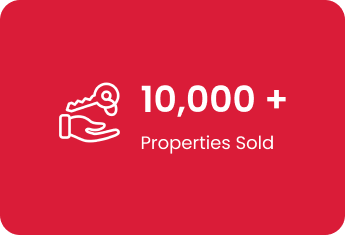


Welcome to Prime Estate Australia, where we embody the values of a genuine heart, excellent service, open communication, and kindness in every step of your real estate journey. We firmly believe in making the entire process easy for you. Whether you're dreaming of owning a home, aiming to optimize your investments, or embarking on a successful career in real estate, our commitment to these principles ensures a seamless and positive experience.
But that's not all – we're a dynamic team with a wealth of experience ranging from 5 years to 20 years. Our diverse expertise allows us to cater to your unique needs and navigate the intricacies of the real estate landscape with confidence. At Prime Estate Australia, we're not just agents; we're your dedicated partners in creating success stories and turning dreams into reality.
At Prime Estate Australia, our commitment is rooted in the principles of a genuine heart, excellent service, open communication, and kindness. We strive to make every step of your real estate journey easy and enjoyable. Our promise is to approach each interaction and transaction with authenticity and warmth, ensuring that your experience with us is not only professional but also deeply human. Whether we're assisting you in finding your dream home, maximizing your investments, or supporting your career in real estate, our commitment is unwavering—to be your dedicated partners, providing exceptional service infused with genuine care.


At Prime Estate Australia, our comprehensive services extend across various real estate facets, ensuring we meet your diverse needs with expertise and dedication. Our team is well-versed in providing tailored advice for: Ready to Move-In Houses or Apartments, Off the Plan Residential, House and Land Packages, Self-Managed Super Funds (SMSF), and Property Management.
At Prime Estate Australia, our commitment is not just to provide services but to be your trusted partners throughout your real estate journey.
Prime Estate Australia has an established reputation and extensive experience in the real estate industry. Their successful property transactions and satisfied clients demonstrate their expertise and reliability, providing customers with peace of mind and professional service.
Prime Estate Australia prioritizes their clients' needs, maintaining a customer-centric approach. Through accountable and transparent communication, they build trust and confidence. By focusing on fostering long-term relationships, they offer personalized solutions that cater to individual preferences and objectives.
Embracing modern technology, Prime Estate Australia streamlines processes, expedites transactions, and provides cutting-edge solutions. Their tech-savvy approach enables them to stay at the forefront of the dynamic real estate market, ensuring a seamless and efficient experience for their clients.
Prime Estate Australia strictly adheres to NSW laws and regulations, ensuring integrity and transparency in all dealings. Clients trust their lawful and ethical approach, providing confidence and a secure real estate experience.




Investing in property can be a lucrative and stable way to grow your wealth over time. Australia's real estate market has shown resilience and potential for favorable returns, making it an attractive option for both domestic and international investors. If you're considering property investment in Australia, here's a step-by-step guide to help you navigate the process:
1. Define Your Investment Goals:
Determine your financial goals and objectives. Are you seeking rental income, capital appreciation, or a combination of both? Defining your goals will help you make informed decisions throughout the investment journey.
2. Conduct Extensive Research:
Research is key to successful property investment. Study different markets within Australia to identify areas with strong growth potential. Consider factors such as population growth, employment opportunities, infrastructure developments, and local amenities.
3. Set Your Budget:
Determine your budget by considering your available funds, financing options, and potential rental income. Take into account additional costs such as stamp duty, legal fees, property management fees, and maintenance expenses.
4. Financing Options:
Explore financing options, including home loans, mortgage brokers, and interest rates. Get pre-approved for a mortgage to have a clear understanding of your budget and increase your negotiating power.
5. Choose the Right Property:
Selecting the right property involves careful consideration. Focus on properties that align with the preferences of the local rental market. Factors such as location, property type, proximity to public transport, schools, and amenities should all be taken into account.
6. Due Diligence:
Conduct thorough due diligence on the property. Review past sales data, property history, and building inspections. Ensure the property has a clear title and check for any zoning or legal restrictions that might affect your investment plans.
7. Seek Professional Advice:
Engage professionals such as real estate agents, conveyancers, lawyers, and property managers. Their expertise will provide valuable insights and guide you through legal and administrative processes.
8. Negotiate and Purchase:
Negotiate the purchase price with the seller or developer. Once an agreement is reached, engage a legal professional to review the contract before signing. Pay the deposit as outlined in the contract.
9. Property Management:
Decide whether you will manage the property yourself or hire a property manager. A property manager can handle tasks such as tenant screening, rent collection, and property maintenance.
10. Tax Considerations:
Understand the tax implications of property investment in Australia. Familiarize yourself with property-related taxes, deductions, and potential capital gains tax obligations.
11. Monitor and Optimize:
Regularly review your investment property's performance. Monitor rental income, expenses, and market trends. Consider making improvements that could enhance rental yields or property value.
12. Long-Term Strategy:
Property investment is a long-term strategy. While short-term fluctuations may occur, historical data shows that Australian property values tend to appreciate over time. Patience and a strategic approach can lead to substantial returns.
Investing in property in Australia can be a rewarding endeavor when approached with careful planning, research, and a clear understanding of the local market dynamics. Remember that each investment is unique, so tailor your approach to align with your financial goals and risk tolerance.

Buying off-the-plan projects can offer potential benefits, such as getting in at an early stage and potentially securing a property at a lower price compared to the market at completion. However, it also comes with its own set of risks and considerations. Here are some tips to navigate the process of buying off-the-plan projects:
1. Research the Developer: Investigate the reputation and track record of the developer. Look into their past projects, reviews, and any potential issues with completed developments. A reputable developer is more likely to deliver a quality product on time. You can gather all the information you need from the provided website https://www.icirt.com
2. Understand the Plans and Specifications: Carefully review the architectural plans, floor layouts, and specifications of the property. Make sure you understand the design, materials, finishes, and any inclusions or exclusions.
3. Visit Display Units: If there's a display unit available, visit it to get a sense of the space, layout, and quality of finishes. This can help you visualize the final product and ensure it meets your expectations.
4. Location and Amenities: Consider the location of the off-the-plan project. Research the neighborhood, amenities, public transportation options, schools, and other factors that can affect the property's future value and your lifestyle.
5. Understand the Timeline: Off-the-plan projects can have longer timelines due to construction and approvals. Be aware of the estimated completion date and potential delays. Consider how this timeline aligns with your needs and plans.
6. Due Diligence: Conduct thorough due diligence on the project, including any planning permits, zoning regulations, and potential future developments that could impact the property's value or livability.
7. Legal Review: Have a legal professional review the contract and terms before you commit. They can identify any clauses that might be unfavorable or raise concerns.
8. Finance and Pre-Approval: Secure your financing and get a pre-approval before signing the contract. Keep in mind that lending conditions might change between when you sign the contract and when the property is completed.
9. Contingencies and Sunset Clauses: Understand any contingency clauses in the contract, such as those related to the project's completion or your ability to secure financing. Also, be aware of any sunset clauses that might allow the developer to cancel the contract if certain conditions aren't met within a specified time frame.
10. Understand Risks: Buying off-the-plan involves the risk of the property's value decreasing by the time it's completed. Research market trends and consult experts to gauge the potential risks involved.
11. Get Professional Advice: Engage professionals like a solicitor, conveyancer, or financial advisor who have experience with off-the-plan purchases. They can provide valuable insights and help you make informed decisions.
12. Negotiate Inclusions: If possible, negotiate with the developer for upgrades or additional inclusions that enhance the property's value or your comfort.
13. Monitor Construction Progress: Stay informed about the construction progress by regularly communicating with the developer. Some developers offer progress updates and site visits for buyers.
14. Resale and Rental Potential: Consider the property's potential resale value and rental income. Think about the property's appeal to future buyers or tenants.
15. Cooling-Off Period: Be aware of the cooling-off period specified in the contract. During this period, you have the option to cancel the contract without significant penalties if you change your mind.
16. Buying off-the-plan can be rewarding if done carefully, but it's essential to balance the potential benefits with the risks involved. Consulting professionals, thoroughly researching the project, and understanding the terms and conditions will help you make a well-informed decision.

Buying your first home in Sydney can be an exciting yet challenging process due to the city's competitive real estate market and high property prices. Here are some tips to help you navigate the process successfully:
1. Determine Your Budget: Before you start searching for a home, figure out how much you can afford. Consider factors such as your income, savings, and potential mortgage rates. Remember to account for additional costs like stamp duty, legal fees, and moving expenses.
2. Get Pre-Approval: Getting pre-approved for a mortgage can give you a clear idea of how much you can borrow and help you narrow down your home search to properties within your budget.
3. Research Suburbs: Sydney has a wide range of suburbs, each with its own unique characteristics and property prices. Research different areas to find the ones that align with your lifestyle preferences and budget.
4. Attend Open Houses: Attend open houses and inspections to get a feel for different properties and neighborhoods. Take notes and pictures to help you remember the details later.
5. Engage a Real Estate Agent: A qualified real estate agent can provide valuable insights, guide you through the process, and help you find properties that match your criteria. Make sure to choose an agent with experience in the Sydney market.
6. Negotiation Skills: The ability to negotiate effectively can make a significant difference in the price you pay for your home. Don't hesitate to negotiate with the seller, especially in a competitive market.
7. Inspect Thoroughly: Once you've found a property you're interested in, conduct a thorough inspection. Look for any signs of structural issues, water damage, or other potential problems that could affect the value of the property.
8. Understand the Contract: Real estate contracts can be complex. Have a legal professional review the contract before you sign to ensure you understand all the terms and conditions.
9. Consider Future Growth: Look for areas that have potential for future growth and development. Proximity to public transportation, schools, shopping centers, and other amenities can contribute to the long-term value of your investment.
10. Be Patient: The process of finding the right property can take time. Don't rush into a decision; take the time to find a home that meets your needs and fits your budget.
11. First Home Buyer Benefits: Check if you're eligible for any first home buyer grants, incentives, or stamp duty exemptions offered by the government. These benefits can significantly reduce the financial burden of purchasing your first home.
12. Building and Pest Inspections: It's advisable to have a professional building and pest inspection done before finalizing the purchase. This can help you identify any hidden issues that may not be visible during a regular inspection.
13. Due Diligence: Research the property's history, including its past sale prices, any recent renovations, and any legal or planning-related matters that might affect the property.
14. Future Resale Value: While buying your first home is exciting, it's also an investment. Consider the property's potential resale value down the line, as this can impact your financial position in the future.
Remember that the real estate market in Sydney can be competitive, so it's important to be well-prepared, financially secure, and informed throughout the process. Consulting with professionals, such as real estate agents, mortgage brokers, and legal advisors, can provide you with valuable guidance and ensure a smoother home buying experience.